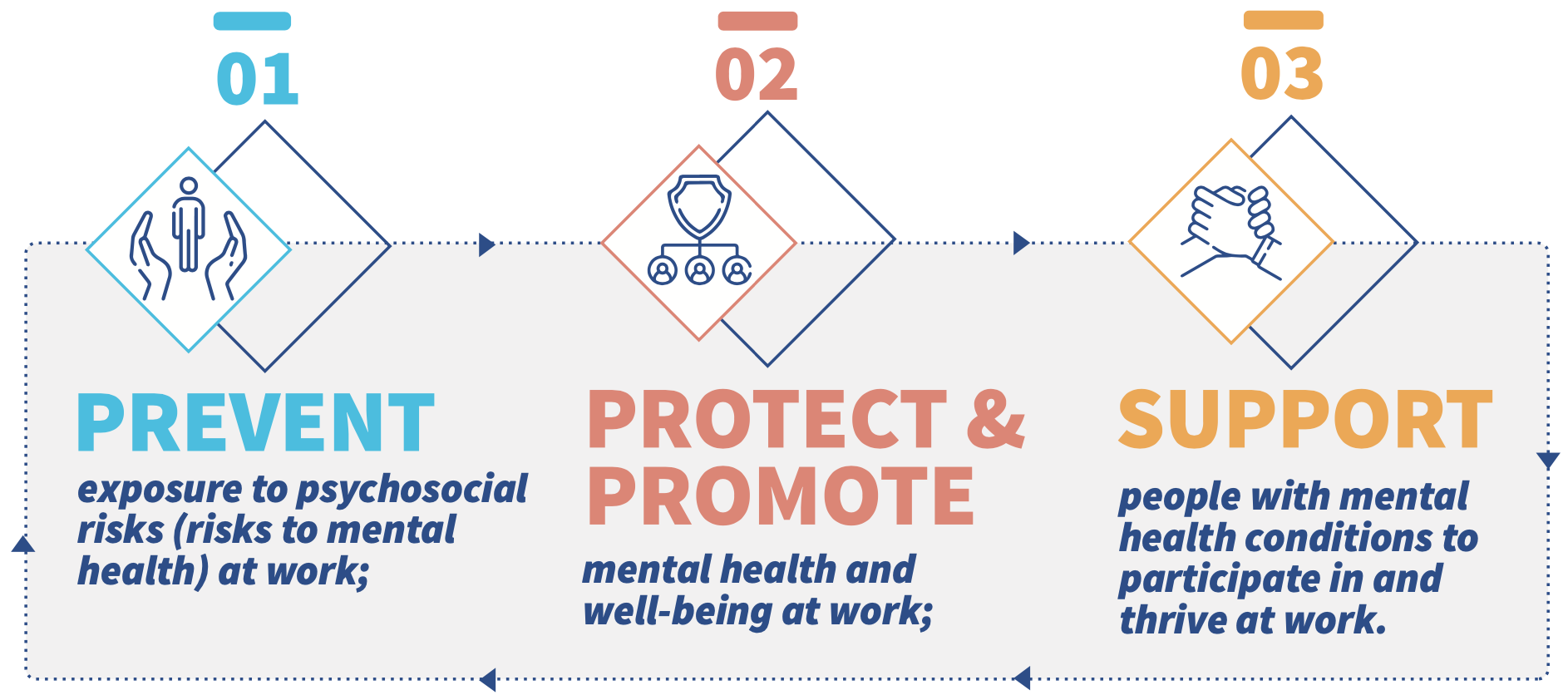In many parts of the world good mental health at work has finally moved from being a ‘nice-to-have’ to a business imperative.
This is good news for employees. Everyone has the right to the highest attainable standard of mental health at work, regardless of the type of employment. A safe and healthy work environment fosters good mental health. However, an unsafe or unhealthy work environment can have a negative impact on mental health and can have lasting impact if not supported.
This is particularly important as the world of work is changing and global crises are increasingly placing pressure on both employers and employees.
Research released by Mckinsey Health Institute this week has found that nearly one in four Gen Z respondent report their mental health worsening in the past three years in response to regional and global crises, higher than any other generation.
However, how do you know if the solutions your workplace is implementing are the right ones?
The WHO Guidelines On Mental Health At Work released today provide a comprehensive overview of evidence-based recommendations on interventions that can be implemented to better prevent, protect and promote, and support the mental health of workers.
They have been developed following a worldwide systematic review of the evidence that exists with by a consortium of experts, led by the World Health Organization, and funded by Wellcome.
A short policy brief developed in a collaboration by WHO and the International Labor Organization has also been released alongside the guidelines. This is particularly helpful for those short on time (to read the 500+ pages of the guidelines!), and suggested actions for all stakeholders – especially governments, employers and representative organizations.
However, employees have a role to play too, in sharing these guidelines with your employer and asking how they are being applied in your workplace.
Two key recommended actions outlined in the policy brief are for employers to:
- Develop a specific policy and plan for mental health at work that aims for continual improvement and is integrated into the Occupational Health and Safety Management system
- Ensure that all interventions are based on the latest evidence available
While both of these recommendations may seem obvious, it is surprising how many companies don’t have a policy or plan in place. Only 37% of large companies surveyed in the UK recently by CCLA published the existence of a stand alone mental health policy or plan, and 17% a partial plan.
And, they can be especially challenging to put in place by small and medium sized organizations which may not have the dedicated resources or teams to develop and implement these, let alone track their impact.
Helpfully, the guidelines provide a number of recommendations of key approaches and interventions to consider including in these policies and plans which have been thoughtfully designed to be applicable to all organization sizes and geographies. Importantly, they also pay particular attention to front line workers, including those working in humanitarian and crisis settings around the world.
The recommendations outlined in the guidelines pay particular attention to solutions that;
- Preventing the risks to mental health at work, such as heavy workloads, limited autonomy, inflexible hours, through organizational interventions.
- Protecting and promoting mental health though training managers – to better support their staff and strengthen interpersonal managerial skills; training workers to reduce stigmatizing attitudes for mental health; and delivering whole of workforce interventions that aim to build workers’ stress management skills.
- Supporting people living with mental health conditions to participate in work– through reasonable accommodations, return to work programmes following an absence, and supported employment to help gain entry to paid work.
The recommendation for continual improvement is an important one. One barrier leaders often cite as a barrier for taking action is the fear of not being perfect. However, this can not and should be used as a reason to not begin to take action.
As the guidelines so powerfully say, addressing mental health at work “should not be seen as onerous. Rather, it offers an opportunity for growth and sustainable development” and “will help both employers and employees “prepare for the future of work and a changing world.”
Continual improvement is also important when considering the second recommendation, to ensure that solutions implementation are evidence based. This is particularly important as many interventions have been found to not have a strong evidence based, and the guidelines themselves highlight many of these gaps.
However, again this should not be a cause for concern. Rather, it is a rally cry for continued action – including undertaking research on what works by employers themselves and sharing case studies of impact.
So what has worked to improve your mental health at work?
Does your employer have a policy and plan in place that meets the recommendations outlined in these guidelines?
We hope these guidelines encourage you to share with your employer what has worked for you, and ask whether the polices and plans they have in place are alignment with these guidelines, to ensure your mental health is supported at work.



